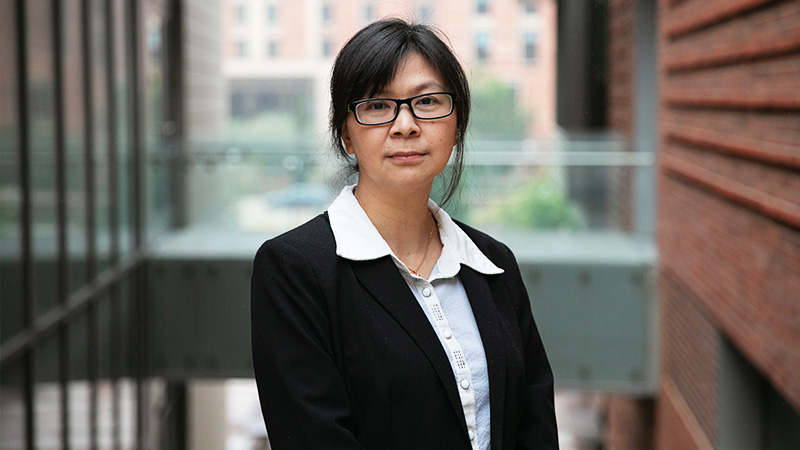UCLA Nanomaterials Engineer Wins Global Award for Innovation in Hydrogen Fuel Cells

UCLA Samueli
Yu Huang, the Traugott and Dorothea Frederking Professor of Engineering at UCLA, has been awarded the 2023 Eni Energy Transition Award.
Yu Huang, the Traugott and Dorothea Frederking Professor of Engineering at the UCLA Samueli School of Engineering, has been awarded the 2023 Eni Energy Transition Award designed to honor the best innovation for decarbonizing the energy system.
Established in 2008 by the Italian oil and gas company Eni, the globally recognized Energy Transition Award is one of the firm’s three main annual prizes for applied research and technological innovation in the energy sector.
This year’s Energy Transition Award honors Huang and another winner at UC Berkeley. Huang was recognized for her research in decarbonizing transportation with affordable and sustainable hydrogen fuel cells. Environmental pollution and global warming have presented serious challenges that require a switch from fossil fuel to clean and renewable energy. Huang has made seminal breakthroughs in catalyst design that have contributed significantly to the development and advancement of renewable energy technologies.
In particular, Huang’s work in creating a unique class of ultrafine platinum nanocatalysts with simultaneously greater electrochemical surface area and longer lifetime has greatly improved hydrogen fuel cell development. This discovery solved the decadeslong dilemma in fuel cell catalyst design to achieve both greater performance and cost effectiveness. Her innovations have removed the critical roadblock for the broad applications of hydrogen fuel cells in next-generation green vehicles with zero emissions, especially in medium and heavy-duty vehicles where both performance and longevity are essential.
Huang joined UCLA in 2006 and now serves as chair of the Department of Materials Science and Engineering. She directs the Huang Research Group, which explores the mechanistic understanding of nanoscale phenomena to address green energy applications in catalysis, fuel cells and materials synthesis. Leveraging the distinctive roles of nanoscale surfaces and interfaces, Huang is creating methodologies to apply the latest developments in a wide range of materials and technologies.
Among her numerous national and international awards and recognitions, Huang is an elected fellow of the Royal Society of Chemistry and the Materials Research Society. She is also a recipient of the International Society of Electrochemistry Prize for Experimental Electrochemistry, the International Precious Metal Institute Carol Tyler Award, the National Science Foundation Special Creativity Award, a Sloan Research Fellowship, a Presidential Early Career Award in Science and Engineering, a National Institutes of Health Director’s New Innovator Award and a Defense Advanced Research Projects Agency Young Faculty Award.
For the past five consecutive years, Huang has been named a highly cited researcher by Clarivate. The annual list recognizes the world’s most influential researchers as determined by authored studies that rank in the top 1% in the number of scholarly citations worldwide.
